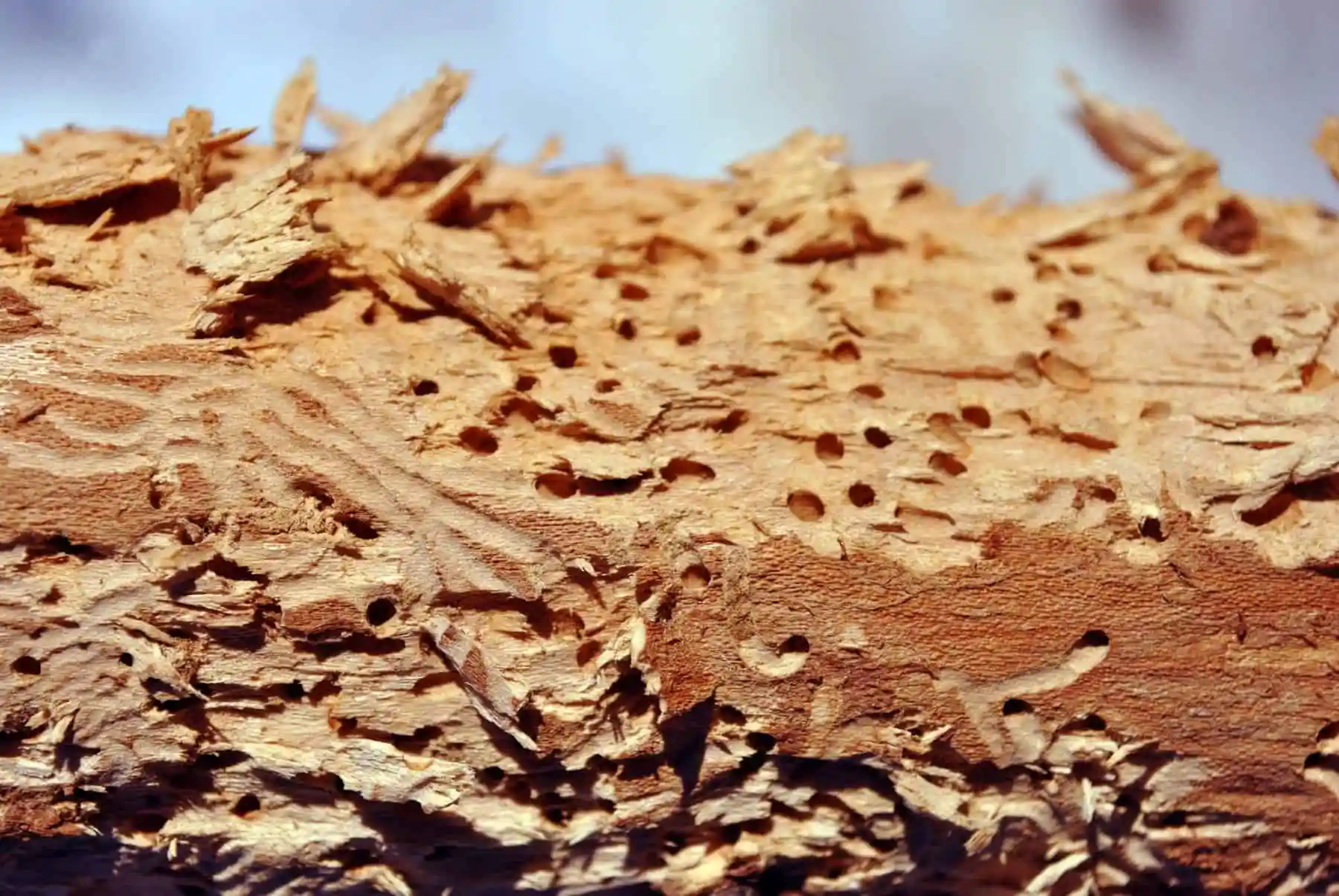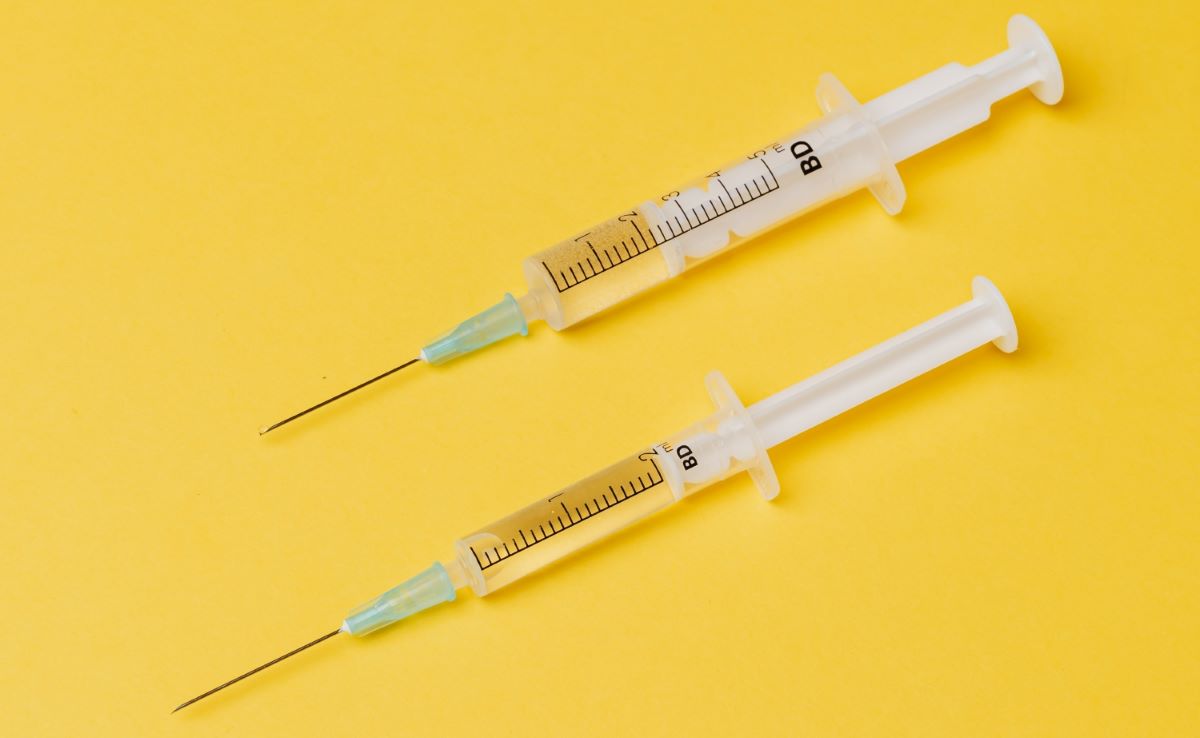

Finance
How Much Do Termite Bonds Cost
Published: October 14, 2023
Find out the cost of termite bonds and how to finance them. Protect your home from costly termite damage with affordable solutions.
(Many of the links in this article redirect to a specific reviewed product. Your purchase of these products through affiliate links helps to generate commission for LiveWell, at no extra cost. Learn more)
Table of Contents
Introduction
Termites. Just the thought of these tiny, destructive insects can send a shiver down your spine. They are notorious for causing extensive damage to homes and properties, often leading to costly repair bills. Thankfully, there is a solution to protect your property from these voracious pests – termite bonds.
A termite bond, also known as a termite protection plan or termite warranty, is a contract between the homeowner and a pest control company. It provides coverage against termite infestations and damage, offering peace of mind and financial protection. But how much do termite bonds actually cost?
In this article, we will delve into the world of termite bonds and explore the factors that influence their costs. We will also discuss the average price range you can expect to pay for a termite bond and highlight important considerations when choosing a termite control provider.
Whether you are a homeowner concerned about potential termite infestations or a real estate investor looking to protect your properties, understanding the cost and benefits of termite bonds is crucial. So, let’s dive in and unravel the mysteries of termite bond costs!
What is a Termite Bond?
A termite bond is a contractual agreement between a homeowner and a pest control company. It provides coverage against termite infestations and the resulting damage to the property. Essentially, it is a form of insurance that safeguards your investment from the destructive forces of termites.
When you enter into a termite bond, a professional pest control company will conduct an inspection of your property to assess the presence of termites or any vulnerable areas. If termites are found, the company will take appropriate measures to eliminate them and prevent future infestations. They may use various methods, such as applying liquid termiticides, installing termite baiting systems, or using physical barriers, depending on the severity of the situation and the preferences of the homeowner.
Once the initial treatment is completed, the termite bond will outline the terms and conditions of ongoing protection. This typically includes regular inspections, often on an annual basis, to detect any signs of termite activity. If termites are discovered during these inspections, the pest control company will provide additional treatments at no extra cost to the homeowner.
One key aspect of a termite bond is its transferability. This means that if you decide to sell your property, the termite bond can be transferred to the new owner. This not only provides peace of mind to potential buyers but also enhances the value and marketability of the property.
It is important to note that termite bonds vary in terms of coverage and duration. Some termite bonds offer lifetime protection, while others may have a specific time limit, such as 5 or 10 years. The level of coverage and the services included in the termite bond can also vary between different pest control companies.
Now that we understand the basics of a termite bond, let’s explore the factors that can influence its cost.
Factors Affecting Termite Bond Costs
The cost of a termite bond can vary depending on several factors. Understanding these factors can help homeowners make an informed decision about their termite protection plan. Here are some key considerations that can influence the cost of a termite bond:
- Property Size: The size of your property is a significant factor in determining the cost of a termite bond. Larger properties require more time, labor, and resources to inspect and treat for termites, thus leading to higher costs.
- Location: The geographic location of your property plays a role in termite bond costs. Certain areas have a higher risk of termite infestations, which may necessitate more thorough treatments or more frequent inspections. Additionally, the local market conditions and competition among pest control companies can impact pricing.
- Type of Construction: The construction type of your property can affect the cost of a termite bond. Homes with crawl spaces or basements may require additional treatment measures to protect against termite entry points. Similarly, homes with multiple levels or complex architectural features may require more extensive treatments, leading to higher costs.
- Past Termite Infestations: If your property has a history of termite infestations or damage, the cost of a termite bond may be higher. Additional measures may be necessary to ensure the eradication of existing termite colonies and to prevent future re-infestations.
- Termite Species: Different termite species require different treatment approaches, and this can impact the cost. Some species, such as subterranean termites, are more common and widespread, while others, like drywood termites, are more localized. The treatment methods for each species may vary, leading to differences in pricing.
- Additional Services: Some pest control companies offer additional services, such as general pest control or rodent control, as part of their termite bond packages. These additional services can increase the overall cost but provide comprehensive pest management for your property.
It is important to note that these factors are not exhaustive, and the cost of a termite bond can vary between different pest control companies. It is recommended to obtain multiple quotes and compare the services and coverage offered before making a decision.
Next, let’s dive into the average cost range of termite bonds to give you a better idea of what to expect.
Average Cost of Termite Bonds
When it comes to the cost of termite bonds, it’s important to remember that prices can vary based on factors such as property size, location, and additional services provided. While it is challenging to provide an exact figure, we can provide a general range to give you an idea of what to expect.
On average, termite bonds can cost anywhere from $500 to $2,500 per year. This range can vary depending on the factors mentioned earlier. Smaller properties with lower risk may fall towards the lower end of the spectrum, while larger properties or those at higher risk may fall towards the higher end.
It’s important to note that the initial cost of setting up a termite bond can be higher due to the necessary inspections, treatments, and any required upfront fees. This initial cost can range from $1,000 to $3,000 or more, depending on the size and complexity of the property.
Many homeowners opt for renewal options that offer ongoing coverage and maintenance. Renewal fees typically range from $300 to $1,500 per year, with variations based on the same factors as the initial cost.
While termite bond costs may seem hefty, it is essential to weigh them against the potential financial consequences of termite damage. Termite damage can quickly escalate into thousands or even tens of thousands of dollars in repair costs, making the protection offered by termite bonds a worthwhile investment.
It’s worth mentioning that some pest control companies offer different tiers of termite bonds, providing varying levels of coverage and services at different price points. It’s always a good idea to discuss your specific needs with pest control professionals to determine which option aligns best with your property’s requirements and your budget.
Next, let’s explore some additional considerations to keep in mind when choosing a termite bond.
Additional Considerations
When choosing a termite bond, there are several additional factors to consider beyond the cost alone. These considerations can help you make an informed decision and ensure that you receive comprehensive protection against termites. Here are some key points to keep in mind:
- Reputation and Experience: Research the reputation and experience of the pest control company offering the termite bond. Look for companies with a proven track record of providing effective termite treatments and quality customer service. Online reviews and recommendations from friends or neighbors can be valuable resources in your evaluation.
- Insurance and Licensing: Ensure that the pest control company you choose is properly insured and licensed. This helps protect you in case of any accidents or damages during the treatment process and ensures that the technicians handling the treatments are qualified and trained.
- Termite Coverage and Exclusions: Review the specific coverage details included in the termite bond. Understand what is covered, such as termite inspections, preventative treatments, and any necessary follow-up treatments. Clarify any exclusions or limitations to avoid unexpected costs or gaps in coverage.
- Transferability and Cancellation: Check the terms and conditions regarding the transferability of the termite bond if you plan to sell your property. Additionally, understand the process and consequences of canceling the termite bond, should the need arise.
- Annual Inspections and Reporting: Ensure that the termite bond includes regular annual inspections to detect and address any termite activity promptly. Ask about the reporting process and how you will be informed of inspection findings and any necessary treatments.
- Customer Support and Guarantees: Inquire about the level of customer support provided by the pest control company and what guarantees they offer. A reputable company should stand behind their work and offer assistance if any termite issues arise during the coverage period.
By considering these factors, you can make an informed decision when selecting a termite bond that offers the right balance of coverage, service, and peace of mind.
Now that we have explored the various aspects of termite bonds, let’s take a moment to delve into their benefits.
Benefits of Termite Bonds
Investing in a termite bond offers numerous benefits for homeowners and property owners. Let’s explore some of the key advantages of having a termite bond in place:
- Prevention and Early Detection: One of the primary benefits of a termite bond is the prevention and early detection of termite infestations. Regular inspections and treatments help identify and eliminate termites before they can cause significant damage to your property.
- Financial Protection: Termite damage can be expensive to repair. Having a termite bond provides financial protection, as the cost of treatments and repairs is often covered under the terms of the bond. This can potentially save you thousands of dollars in repair costs.
- Pest Control Expertise: When you have a termite bond, you have access to the expertise and knowledge of professional pest control technicians. They understand the behavior of termites and can tailor treatments to effectively eliminate and prevent infestations.
- Peace of Mind: Termite bonds provide peace of mind and alleviate the stress and worry associated with the potential damage caused by termites. You can rest easy knowing that your property is protected and that any termite issues will be addressed promptly.
- Transferability: Many termite bonds are transferable to new homeowners. This adds value to your property when you decide to sell, as prospective buyers can have confidence in the termite protection already in place.
- Long-Term Cost Savings: While termite bonds come with an annual or renewal fee, the cost of ongoing maintenance and treatments is often significantly lower than the expenses incurred in repairing termite damage. In the long run, a termite bond can save you money.
It is important to remember that termite bonds are not a guarantee that your property will never experience a termite infestation. However, they significantly reduce the risk and provide a proactive approach to termite control and protection.
Now that you are aware of the benefits of termite bonds, let’s wrap up our discussion.
Conclusion
Termite bonds offer homeowners and property owners a proactive and effective solution for termite control and protection. By understanding the factors influencing termite bond costs and considering additional important factors, you can make an informed decision about the right termite bond for your needs.
While the cost of a termite bond can vary depending on factors such as property size, location, and services provided, the peace of mind and financial protection it offers outweigh the upfront and ongoing expenses. The average cost of termite bonds ranges from $500 to $2,500 per year, with initial setup costs ranging from $1,000 to $3,000 or more.
When choosing a termite bond, it is crucial to consider the reputation of the pest control company, their experience, the coverage details, transferability, annual inspections, and customer support. By thoroughly evaluating these factors, you can ensure that your property remains protected against termite infestations and damage.
Remember, termite bonds not only help prevent termite infestations but also allow for early detection and prompt treatment, potentially saving you thousands of dollars in repair costs.
Investing in a termite bond provides peace of mind, knowing that your property is protected by pest control experts who possess the knowledge and tools to effectively eliminate and prevent termite infestations.
So, don’t let the fear of termites and potential damage weigh on your mind. Consider a termite bond as a worthwhile investment to safeguard your property and ensure its long-term protection.
Take the necessary steps to protect your home or property from termites today, and enjoy the peace of mind that comes from having a termite bond in place.














